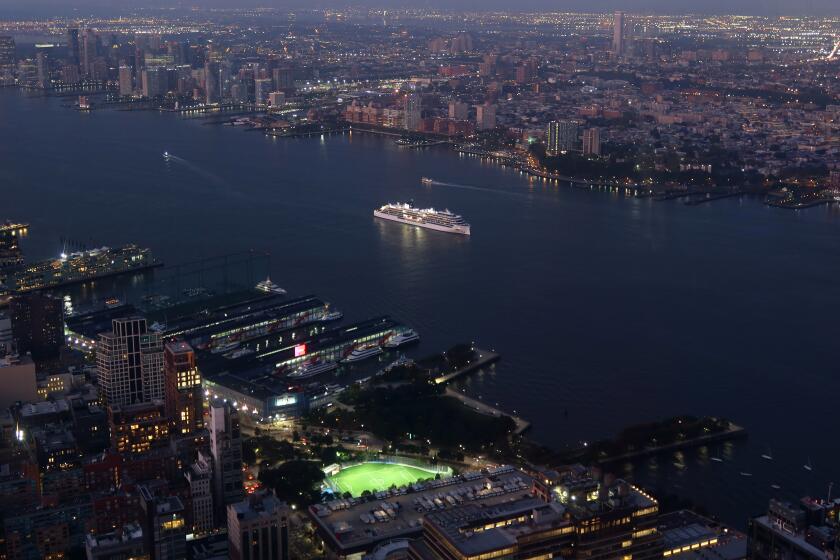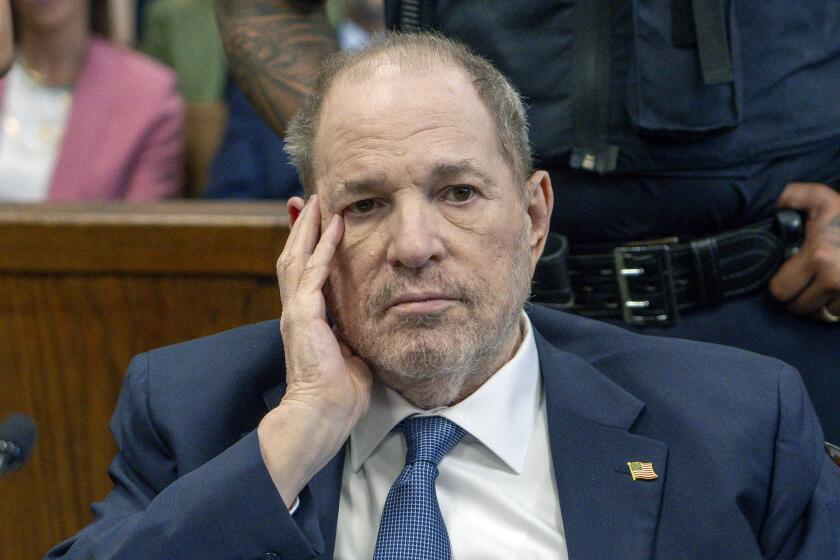Contras Harden Terms; Peace Hopes Appear Dim
Prospects for a Nicaraguan peace accord appeared to dim Wednesday as Contra negotiators hardened some of their demands and Sandinista policemen detained 15 opposition leaders.
The detentions broke up a peaceful anti-Sandinista march in downtown Managua as government and Contra leaders met in a hotel at the edge of town, working against a deadline set for this evening by the U.S.-backed rebels to either achieve an armistice or break off six months of peace talks.
Government negotiators first defended the detentions. But later a presidential spokesman, Manuel Espinoza, said they were made without high-level authorization. The detained marchers were freed without charges after four hours.
Rebel officials said the incident hardened their resolve to seek firmer assurances than the government is offering that postwar Nicaragua will be more democratic. They threatened again to stop honoring an 11-week-old truce, the first of the six-year war, if they do not get better terms today.
Witnesses said police stopped about 30 politicians, representing 14 opposition parties, as they walked to the National Assembly building to demand revocation of Nicaragua’s press censorship law.
During an argument over whether the politicians needed a permit, riot policemen arrived and, amid scuffling, herded 15 of them onto a bus, witnesses said.
The detentions took Gen. Humberto Ortega, the chief government negotiator, by surprise, according to a member of his delegation. He said Ortega telephoned Interior Minister Tomas Borge, who denied authorizing the action and ordered the politicians freed.
Tension Surrounds Talks
Political tension has surrounded the talks since they began Tuesday. Sandinista newspapers and television channels have carried images of bloodied war victims alongside portraits of Contra negotiators.
“We don’t want amnesty for the criminals,” said one full-page ad, signed by the Committee of Mothers of Heroes and Martyrs, a Sandinista organization. Amnesty for Contra fighters is a concession offered by the government in exchange for their disarmament.
The rebel delegation formally protested the ads Wednesday.
“The combination of this defamation campaign . . . and the repressive actions (against the marchers) justify our demand for clear and precise written guarantees in any cease-fire agreement,” Alfredo Cesar, the chief rebel negotiator, said.
The latest government offer says that if the Contras enter defined military zones, their leaders may join a “national dialogue” between the Sandinistas and opposition parties.
In that forum, the Sandinistas would be willing to reach, by the end of August, agreements “to assure or perfect” such Western democratic principles as freedom of press, fair elections, full respect for human rights, equal rights for all political parties and the right to strike. The rebels would then lay down their arms in September.
After a long discussion Tuesday of what these democratic guarantees mean, Sandinista officials said the Contras accepted that details of any legal changes would have to be left for the multiparty dialogue.
Wednesday, however, Cesar said the rebels cannot sign an armistice unless the government spells out such changes and sets a timetable for putting them in force.
In another reversal, rebel director Aristides Sanchez insisted Wednesday that the rebels join the national dialogue as official representatives of a guerrilla army, a proposal rejected by the government.
Earlier, Sanchez reportedly shook his head at the bargaining table as Cesar said the government could seat the rebels as delegates of political parties.
Sandinista officials said that Cesar admitted privately he was being forced into a hard line by Sanchez and Enrique Bermudez, the rebel military commander.
More to Read
Start your day right
Sign up for Essential California for news, features and recommendations from the L.A. Times and beyond in your inbox six days a week.
You may occasionally receive promotional content from the Los Angeles Times.





